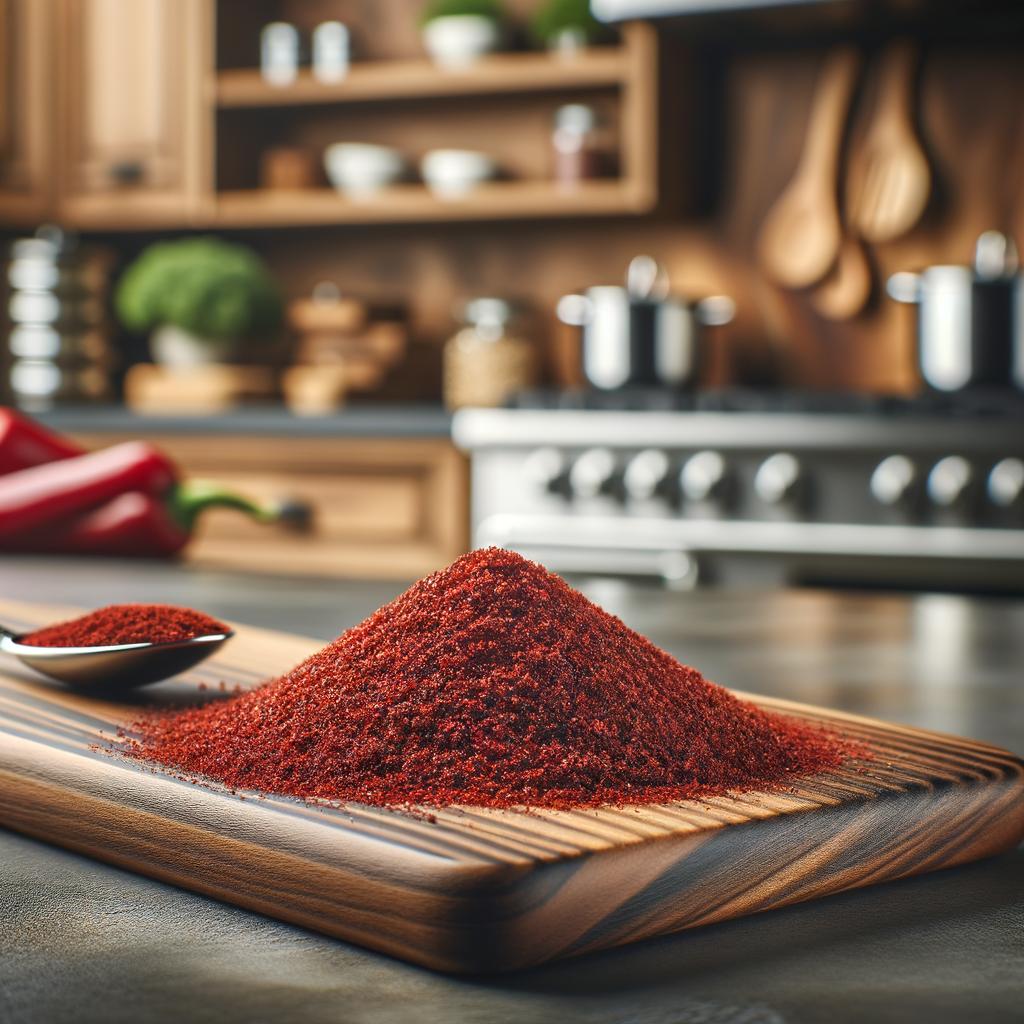Sumac Powder

Description
Sumac powder, a jewel in the crown of Middle Eastern cuisine, is a vibrant, ruby-red spice that captures the essence of both beauty and taste. Its appearance is as appealing as its flavor, with a granular texture that's fine to the touch, akin to powdered sugar. The flavor profile of sumac is unique and intriguing. It presents a tangy, lemony taste, but with a fruity, slightly sweet undertone that sets it apart from the sourness of lemons. Sumac's unique characteristic is its ability to add a pop of color and a tart, astringent flavor without overpowering a dish, a quality that is rare among spices.
Primary Uses
Sumac powder is a versatile spice, used extensively in Middle Eastern and Mediterranean cuisines. It's a key component in classic dishes like Fattoush salad and Za'atar spice mix. Sumac is sprinkled on hummus, used as a rub for grilled meats, and even stirred into yogurt for a tangy twist. Its vibrant color makes it a beautiful garnish on rice dishes, kebabs, and dips. Beyond its culinary uses, sumac has been used traditionally for its medicinal properties, particularly for its anti-inflammatory effects, and it holds a significant place in the cultural fabric of the Middle East.
History
The romance of sumac powder dates back to ancient times. It's believed to have been used by the Romans as a souring agent before the discovery of lemons. The spice is steeped in folklore; in some cultures, it's associated with the mythical phoenix bird, symbolizing the cycle of life and rebirth. Over the centuries, its use has spread across the globe, and today, it's gaining popularity in modern kitchens for its unique flavor and health benefits.
Nutritional Information
Sumac powder is not just about taste and color; it's also a treasure trove of nutrients. It's rich in antioxidants, which help combat oxidative stress in the body. It's also a good source of vitamin C, providing immunity support. Additionally, sumac contains small amounts of minerals like calcium, magnesium, and potassium. Compared to other spices, sumac has a lower sodium content, making it a healthier alternative for adding flavor to dishes. Its potential health benefits include improving heart health, increasing antioxidant levels, and even aiding in blood sugar control. As with all spices, moderation is key to reaping the benefits of sumac without overdoing it.

